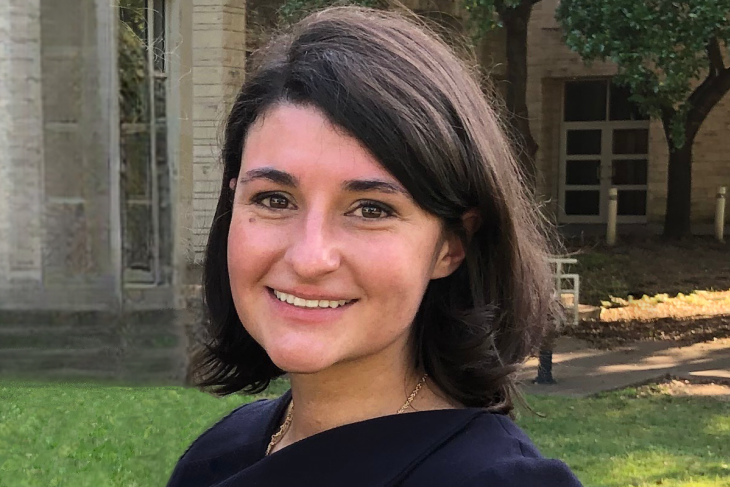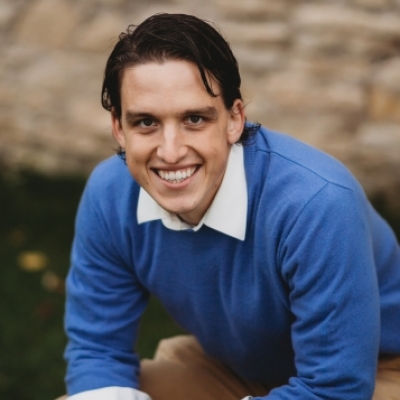Classical education is undergoing a renaissance. According to a recent analysis by Arcadia Education, the classical sector is growing by 5 percent annually with a total projected enrollment of 1.4 million students by 2035. At the center of this growth is Hillsdale College, whose Barney Charter School Initiative has given rise to the second largest system of classical charter schools in the country (second only to the Great Hearts Academies in the Southwest). The initiative’s first school opened its doors in 2012 and has ballooned to thirty member schools in just over a decade with forty-seven more schools using its curriculum.
I had the chance to sit down with Kathleen O’Toole, an assistant provost for K–12 Education at Hillsdale College where she leads the initiative, to talk about the system of schools, how she found herself in this position, and classical education more broadly.
Let’s start with your background. What did you do before you began leading the Barney Charter School Initiative at Hillsdale College, and how did you end up in that position?
Well, if there’s one thing consistent about my life so far, it’s that I’ve always loved school and I’ve tried to find a way to be a part of schools for as long as possible. Before I came up here, I was the headmaster of a start-up Hillsdale Classical School, a teacher, and a college professor at a couple of very different colleges. Whether I was teaching at a top-ten liberal arts college or something much less glamorous in the middle of nowhere Kentucky, I really liked teaching the most. And that’s what made me interested in K–12 education. And that remains, I think, the most important thing that I do.
How did you discover classical education?
Well it wasn’t called classical education when I was growing up. It was just called liberal education. I came to understand what it was deeply when I went to the University of Dallas, which is a great liberal arts school with an excellent faculty and a really robust core curriculum. But we didn’t use the term classical education in those days, even though that wasn’t very long ago. I became familiar with classical education when I started learning about Hillsdale.
What’s the Barney Charter School Initiative? How does it function? How many schools are there? Can you give us the elevator pitch for this system of schools?
The Barney Charter School Initiative is a project of Hillsdale College that started back in 2010. We at the college provide free guidance and support to local groups of people who want to see an excellent classical school in their area. To date, we’ve helped dozens of charter schools get rolling, and we have thirty member schools across the country. Now we work very closely with these schools, but we don’t own or operate them. They’re all locally operated, which we think is an important element, but they’re faithful to the same mission that we’re faithful to.
So if I walk into one, what makes it different? Students in uniforms and Aristotle sitting on shelves?
You would definitely see Aristotle. You would definitely see uniforms. You wouldn’t see a lot of technology.
One way to talk about classical education is to talk about the core elements of it, the things that you would observe first when you went into a school. That means children raising their hands and having actual conversations with each other rather than relying on technology to communicate or learn. That means teachers who are educated deeply in their subjects and who are also really good at explaining what they know.
The things that we study are also different. We’re not innovating for the sake of innovation. There’s only so much time that you have when a child is receiving his or her primary and secondary education, so you want to make sure that you’re spending those formative years with the very best. To that end, you’ll see that the study of the Great books is a huge part of a K–12 classical education.
And we don’t think that children are too little to study real things. If you give even a very young child access to something that is really worthy, really thought provoking, really worth spending time on, that child responds. Children know when they’re being talked down to, and they know when they’re being given worthy things to do. The curriculum is full of worthy things, whether it’s great novels or a real history lesson given to very young children.
Finally, each school has an orderly plan for the education of its students. And the plan is shared by all of the teachers, kindergarten through twelfth grade. It’s not up to the teacher to focus on whatever he or she is interested in that year. No, there’s an entire course of study that is integrated and that builds upon itself year after year after year.
Isn’t this what happens in traditional public schools?
I think that in most cases, public schools are not cohesive. There is not a plan for the child’s education from kindergarten through twelfth grade. Instead, it falls to the individual teacher. The things that you learn in the education that you receive in a Hillsdale-affiliated school are much richer than what you might receive elsewhere.
I remember when my school first started back in 2014, and parents told me about the differences they saw. They said within about four or five weeks, the conversations that they were having with their children in the car on the way home were completely different. Their children weren’t burnt out anymore. They weren’t bored. They’d had enough time to run around during the day. The things that they had been learning were truly thought-provoking and truly interesting to the children. And so they were energized by it even though it was the end of a long school day, and they had so much more to say to their parents. And over time, they became a lot more articulate at saying those things.
How would you define classical education? I know every person you ask might give a slightly different answer to that question, but I’m curious as to yours.
Classical education is a cohesive course of study that’s built upon a true understanding of the human being. We are rational animals, so when we talk about our full development, happiness, or flourishing, we have to talk about both intellectual and moral virtue.
Intellectual virtue is the development of our mind and our habits of thinking. In a classical education, we develop those habits of thinking by focusing on two core areas of human knowledge: knowledge of human things and knowledge of the natural world, from which you get the humanities and the sciences.
But human beings are not merely intellectual creatures; we’re moral creatures, too, so an education can’t merely be an education in intellectual virtue. It has to develop the kinds of character that will make us able to choose well and to think well about our dealings with other human beings. And so, it’s an education in both moral and intellectual virtue for the sake of becoming happy.
It’s easy to envision what classical education means in a literature, history, or civics classroom. But what makes for a classical math or classical science?
We talked earlier about how the curriculum proceeds in an orderly way. The subject of mathematics is one way in which you can see the necessity of that progression most clearly. For example, when you’re growing up and it’s time for you to begin studying mathematics formally, you always begin with addition. And after addition, you always go to subtraction. And after subtraction, you always go to multiplication and then division. That’s not because that’s the way we’ve always done it, but rather that’s the way it has to be done in order to understand mathematics.
Could the very best teacher teach multiplication to the very best student under the very best conditions before they understood addition? It’s impossible because multiplication is repeated addition. You have to get that concept first. Classical mathematics is an approach to mathematics that understands the logical order in which mathematical concepts need to be taught in order to make rational sense.
Another way of putting it is that mathematics is the purest and clearest way in which we can study the natural world. It takes students through a course of study, which is written in nature and so is not up to us at all. It gives them the ability to appreciate, among other things, purely abstract thought. It develops in you a kind of taste for truth and the certainty that can come when you encounter a mathematical truth or a truth like a mathematical truth.
As for science, in a classical school, it is the study of the observable, physical, natural world. Our posture is, first of all, one of observation and reflection versus control. If you look at the curriculum that you would see in a STEM school or the general way in which we teach science these days, it’s very much learning about the natural world, so that you can manipulate it and do something with it. For example, if your primary education in physics is engineering, then what you’re learning is to understand the laws of physics so that you can make something out of the physical world. And that’s good. Engineering is great. Technology is great. They’re useful. But all of it has a primary posture of manipulation, control, and putting the human being sort of in the driver’s seat when it comes to nature.
So that sounds wonderful to me personally, but I know many critics of classical education argue that it’s just political conservatism or Trojan Horse for Christianity. Are they right?
Many of the schools affiliated with Hillsdale College are public charters, which means that they do not provide religious instruction. Matters of faith are left to the family and church.
On the question of whether they’re political schools, I will say that it’s very important that these schools are not partisan for the same reason that they’re not forcing students toward a particular set of religious beliefs. They’re also not guiding their students toward a particular set of political beliefs. The purpose of a classical education is much deeper and much broader than that. In the upper school curriculum, children have the opportunity to read great works that are great because they teach us to ask the most important questions, not because they put us in touch with a specific doctrine. These are not doctrinaire places, and they’re certainly not politically partisan places.
The study of America is an important part of these schools—in history, government, and literature. The course of study emphasizes that teachers and the students focus especially on primary source documents. If we’re going to try to understand what America is, we should read the evidence first and ask questions of the evidence. Questions are central to classical education. We’re constantly saying to teachers to improve your questioning, and that’s just antithetical to this idea that these are doctrinaire places that have specific things that they need students to believe.
What’s next for the Barney Charter School Initiative? Takeover American education and plant a school in every township and city in America?
The best way that we can be most helpful to the cause of recovering excellence in American education is to help local groups of people establish classical schools in their area that are beacons for teachers, for parents, and for other schools across the country. And the work that goes on in these excellent Hillsdale member schools can be emulated by anyone. Again, it’s not rocket science. It just requires a return to tried and true methods of teaching, a tried and true curriculum, and a focus on the development of the individual child’s intellectual and moral virtue as the primary purpose of the school.




